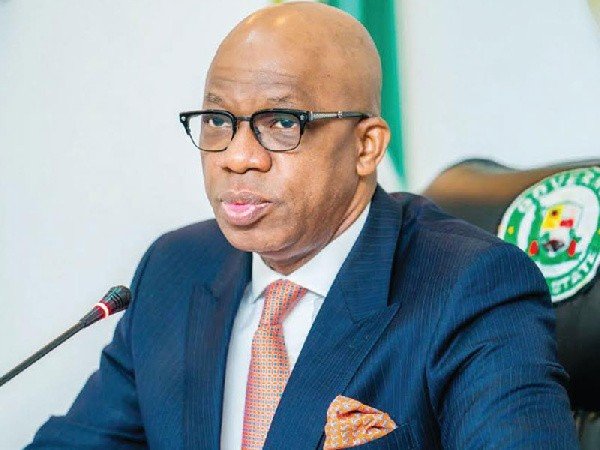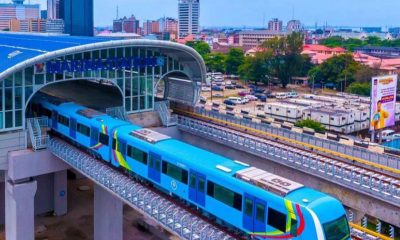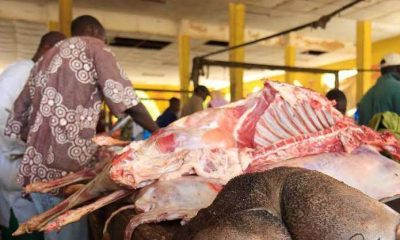Nation
Ogun, Oyo indigenes top crime list in Lagos – Govt

The Lagos State Government has disclosed that indigenes of Ogun and Oyo states constitute the highest number of criminal suspects arrested within Lagos between January 2024 and May 2025.
This revelation came during a ministerial press briefing on Wednesday, as part of activities marking the second anniversary of Governor Babajide Sanwo-Olu’s second term in office.
The disclosure was made by the state’s Attorney General and Commissioner for Justice, Lawal Pedro (SAN), who attributed the statistics to data compiled through the Lagos Criminal Information System (LCIS) – the state’s central database for tracking criminal cases and suspects.
According to Pedro, the Lagos Criminal Information System (LCIS) is a major milestone in the state’s effort to modernize and digitize the administration of justice. Launched to enhance efficiency and transparency, the LCIS provides real-time information on criminal cases being prosecuted in the state’s Magistrates and High Courts.
“The LCIS now houses detailed records of suspects and convicts, including biometric data, photographs, personal details, and case histories,” Pedro said. “This has allowed the Ministry of Justice to better monitor repeat offenders and analyze patterns of crime across Lagos.”
The system, he noted, excludes data from police stations but covers all suspects processed through the court system and detained in the state’s custodial facilities.
As of May 2025, the total inmate population in Lagos custodial centres stood at 9,096—about 106 percent above the facilities’ official holding capacity. Between 2018 and May 2025, LCIS logged 73,962 criminal cases or inmate entries, while over 10,000 of those were processed in the last 17 months alone.
Pedro attributed part of the backlog to the challenges in the wider criminal justice ecosystem, including delays in police investigations, lack of coordination among agencies, and slow judicial processes. He noted that the government is working to streamline operations by introducing more technology-driven interventions, including virtual courtrooms and digital witness protection rooms within the Ministry of Justice.
The commissioner also revealed that 64 percent of all convictions recorded between January 2024 and May 2025 were secured through plea bargaining—a strategy being increasingly used to decongest prisons and accelerate the judicial process.
“Plea bargaining has helped us reduce the burden on the courts while ensuring that offenders take responsibility for their crimes,” Pedro said, adding that the state is refining the framework to ensure it does not compromise justice for victims.
While the commissioner stopped short of specifying what types of crimes are most commonly committed by non-indigenous suspects, he confirmed that Ogun and Oyo residents lead the list of those arrested and tried within Lagos. Analysts suggest this trend reflects Lagos’s position as Nigeria’s commercial capital, drawing migrants from neighboring states in search of economic opportunities—some of whom end up in conflict with the law.
Critics, however, warn that such data could fuel ethnic profiling and call for a more nuanced understanding of crime statistics, with emphasis on socio-economic drivers rather than state of origin alone.
A Broader Criminal Justice Reform Agenda
The Sanwo-Olu administration says its broader goal is to build a more accountable and humane justice system. Ongoing reforms include:
Establishment of a Victim Support Fund
Upgrading of forensic laboratories and evidence management systems
Expansion of the Public Defender’s Office and Citizens Mediation Centres
Increased legal aid for indigent defendants
Pedro emphasized that the state remains committed to upholding the rule of law while balancing public safety and human rights.
Housing Milestones Also Recorded
At the same event, Governor Sanwo-Olu commissioned two new housing estates under the state’s affordable housing initiative. These estates, located in Ibeshe and Agbowa, are expected to ease the housing deficit in Lagos and provide decent accommodation for thousands of families.
The governor reiterated his administration’s dedication to delivering on key sectors such as housing, justice, transportation, education, and health as part of his second-term THEMES Plus agenda.











